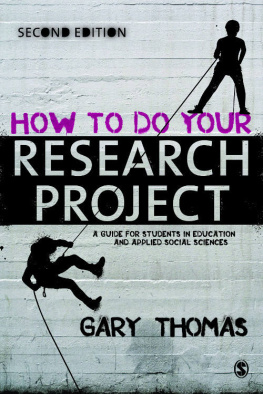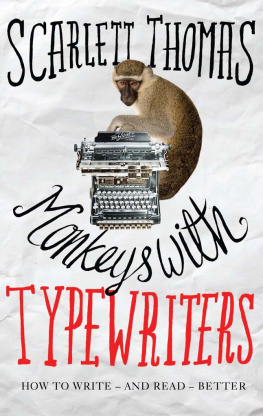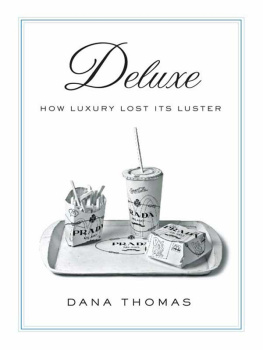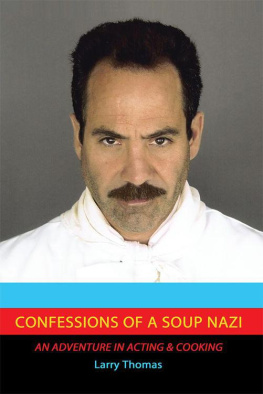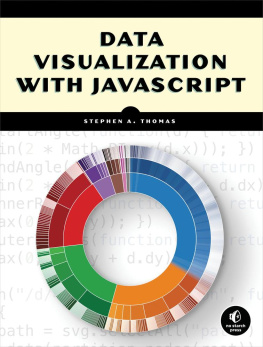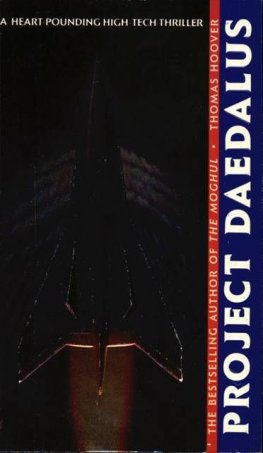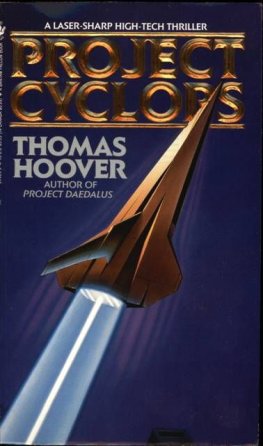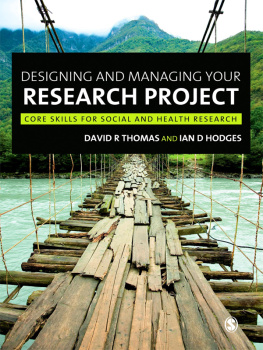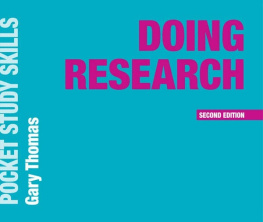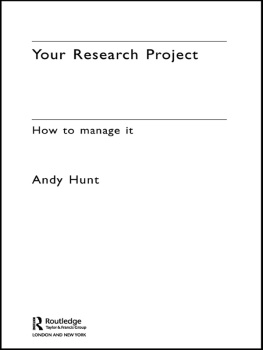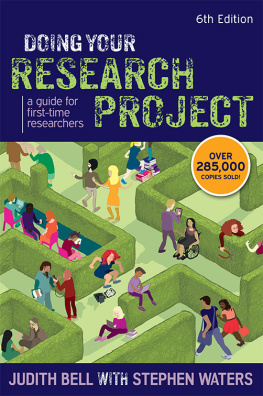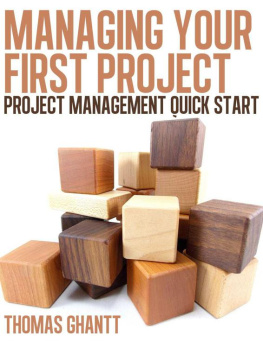Thomas - How to Do Your Research Project
Here you can read online Thomas - How to Do Your Research Project full text of the book (entire story) in english for free. Download pdf and epub, get meaning, cover and reviews about this ebook. year: 2013, publisher: SAGE Publications, genre: Children. Description of the work, (preface) as well as reviews are available. Best literature library LitArk.com created for fans of good reading and offers a wide selection of genres:
Romance novel
Science fiction
Adventure
Detective
Science
History
Home and family
Prose
Art
Politics
Computer
Non-fiction
Religion
Business
Children
Humor
Choose a favorite category and find really read worthwhile books. Enjoy immersion in the world of imagination, feel the emotions of the characters or learn something new for yourself, make an fascinating discovery.
How to Do Your Research Project: summary, description and annotation
We offer to read an annotation, description, summary or preface (depends on what the author of the book "How to Do Your Research Project" wrote himself). If you haven't found the necessary information about the book — write in the comments, we will try to find it.
Thomas: author's other books
Who wrote How to Do Your Research Project? Find out the surname, the name of the author of the book and a list of all author's works by series.
How to Do Your Research Project — read online for free the complete book (whole text) full work
Below is the text of the book, divided by pages. System saving the place of the last page read, allows you to conveniently read the book "How to Do Your Research Project" online for free, without having to search again every time where you left off. Put a bookmark, and you can go to the page where you finished reading at any time.
Font size:
Interval:
Bookmark:
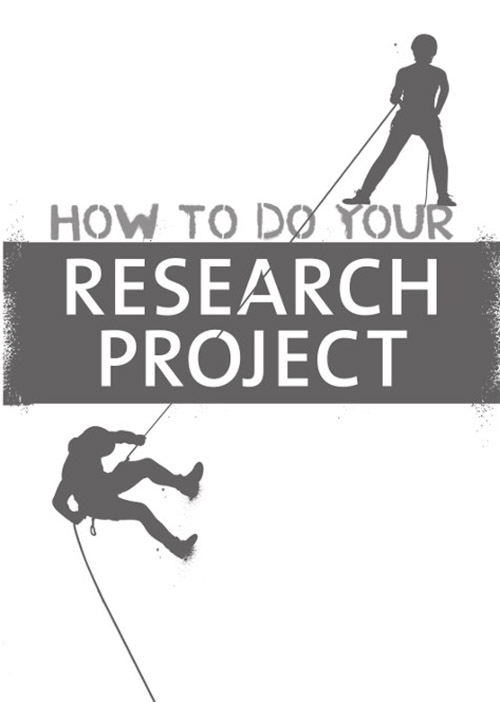
SAGE has been part of the global academic community since 1965, supporting high quality research and learning that transforms society and our understanding of individuals, groups and cultures. SAGE is the independent, innovative, natural home for authors, editors and societies who share our commitment and passion for the social sciences.
Find out more at: www.sagepublications.com

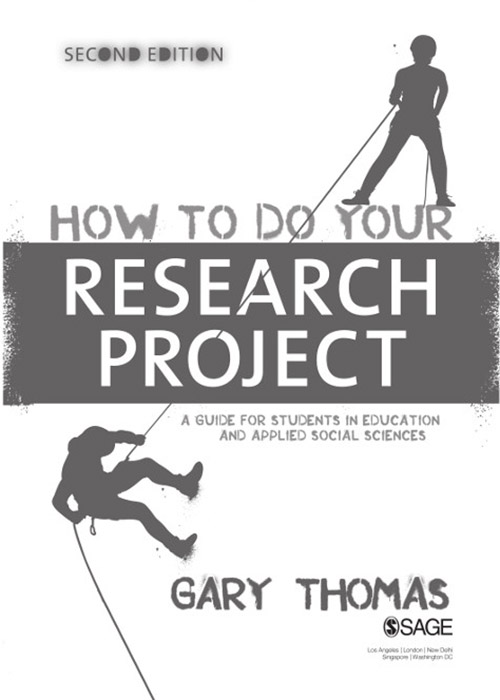
Gary Thomas 2013
First published 2013
First edition published 2009. Reprinted 2009 (three times), 2010 (twice), 2011
Apart from any fair dealing for the purposes of research or private study, or criticism or review, as permitted under the Copyright, Designs and Patents Act, 1988, this publication may be reproduced, stored or transmitted in any form, or by any means, only with the prior permission in writing of the publishers, or in the case of reprographic reproduction, in accordance with the terms of licences issued by the Copyright Licensing Agency. Enquiries concerning reproduction outside those terms should be sent to the publishers.
Figures 5.15.4 and 5.8 Sarah Wimperis, of Graham Cameron illustrations, 2013
All other illustrations Shaun Mercier, 2013
Library of Congress Control Number: 2013930449
British Library Cataloguing in Publication data
A catalogue record for this book is available from the British Library
ISBN 978-1-4462-5886-6
ISBN 978-1-4462-5887-3 (pbk)

SAGE Publications Ltd
1 Olivers Yard
55 City Road
London EC1Y 1SP
SAGE Publications Inc.
2455 Teller Road
Thousand Oaks, California 91320
SAGE Publications India Pvt Ltd
B 1/I 1 Mohan Cooperative Industrial Area
Mathura Road
New Delhi 110 044
SAGE Publications Asia-Pacific Pte Ltd
3 Church Street
#10-04 Samsung Hub
Singapore 049483
Editor: Jai Seaman
Development editor: Amy Jarrold
Production editor: Katherine Haw
Copyeditor: Richard Leigh
Marketing manager: Ben Sherwood
Cover design: Lisa Harper
Typeset by: C&M Digitals (P) Ltd, Chennai, India
Printed in Great Britain by MPG Printgroup, UK

CONTENTS
ABOUT THE AUTHOR

Being of a nervous disposition as a child, Gary Thomas failed to write anything on his 11-plus examination paper, which inaction took him to secondary modern school. His subsequent zigzag through the education system gave him broad experience of its good and bad sides.
He eventually became a teacher, then an educational psychologist, then a professor of education at the University of Birmingham, where his teaching, research and writing now focus on inclusive education and the methods used in social science research. He has led a wide range of research projects and has received awards from the AHRC, the ESRC, the Nuffield Foundation, the Leverhulme Trust, the Department for Education, charities such as Barnardos and the Cadmean Trust, local authorities and a range of other organisations. He has written or edited 20 books and lots of boring academic articles.
People tell him he looks far too young to be a grandparent, but, believe it or not, he is the proud grandfather of a little boy called Nicholas. He likes, in alphabetical order, cats, chess, cycling, dogs and writing. He dislikes 4x4 cars, pomposity and people who try to make things sound more complicated than they are (in that order).
Despite supporting Aston Villa football club, he maintains an optimistic outlook on life.
PREFACE
I was delighted when SAGE asked me to write a second edition of this book, and I was especially pleased on reading students, tutors and reviewers comments on the first edition. These made it clear that something I had tried to achieve with the first edition to write a book about doing research that communicated easily and without jargon had come off. In the second edition I resolved to update the book, to include more material and, crucially, to write in the same style, always striving to use a conversational approach and, where there was a choice between a simple word and a hard one, to use the simple one.
Research is useful and it is exciting to do, and the expectation for students to do a research project is becoming more and more common in almost every area of applied social science: education, health sciences, social work, criminology, and so on. And this is happening at every stage in higher education: foundation, undergraduate and postgraduate. It is right that this should be the case that students should be learning by doing for the research project teaches skills that no lecture can teach. Not only does it enable learning about the particular topic chosen for research but it also teaches students about having a questioning disposition, about evidence and about the frailty of knowledge, about methods of research and their strengths and weaknesses. It helps you to learn independently and to organise your time. With the skills and the awarenesses that it fosters, research provides an almost tangible platform for personal and professional development.
I dont like to think too long about how many hundreds of projects undergraduate, postgraduate and doctoral I have supervised because it reminds me of my age. But the more I supervise the more I realise that whether you are doing an undergraduate project, a masters, a PhD or a major piece of research for a government department, you always go through much the same sequence of activity. All research contains the same basic ingredients having a question, discovering what others have done, refining your question in the light of that discovery and then going out to answer the question yourself. Thats the basic framework, and beyond that there are better and worse ways of going about doing it. In this book I wanted to show the better ways, using examples (of mistakes as well as successes) from my own experience wherever possible, to those who are inexperienced in doing research: the ways that avoid pain and encourage satisfaction and pleasure. Yes, pleasure: research really can give you a buzz. Theres an immense satisfaction that comes from finding out something new and presenting it in a form that other people can understand.
On the assumption that the basic ground rules for research are similar at whatever stage, I havent attempted to pitch this book at one particular group: undergraduate or postgraduate. Ive tried to keep it simple and straightforward in a way that I hope will appeal to all students in education and the social sciences, and whether you are an undergraduate or just beginning doctoral work I hope it will be relevant. While I realise that what emerges is inevitably a bit of a cookbook, I hope it is more of an Elizabeth David cookbook than any other in other words, telling a story or set of stories, and containing opinions as well as recipes.
At several points in the book I discuss the importance of critical reflection, and I hope that I have given a taster of this in my own writing. So, where there is methodological controversy I say so. Where the academic community seems to me to be pretentious, pompous or unsure of itself, I also say so, and try to explain why. To my mind, there is no purpose to be had in papering over the frailties of an academic area with verbosity, pretend-clarity or pseudo-scientific jargon, and where the academic community in applied social science seems to me to do this I say so. I hope that in communicating a critical disposition I have presented the book more as a series of conversations than as a set of lectures.
Next pageFont size:
Interval:
Bookmark:
Similar books «How to Do Your Research Project»
Look at similar books to How to Do Your Research Project. We have selected literature similar in name and meaning in the hope of providing readers with more options to find new, interesting, not yet read works.
Discussion, reviews of the book How to Do Your Research Project and just readers' own opinions. Leave your comments, write what you think about the work, its meaning or the main characters. Specify what exactly you liked and what you didn't like, and why you think so.

